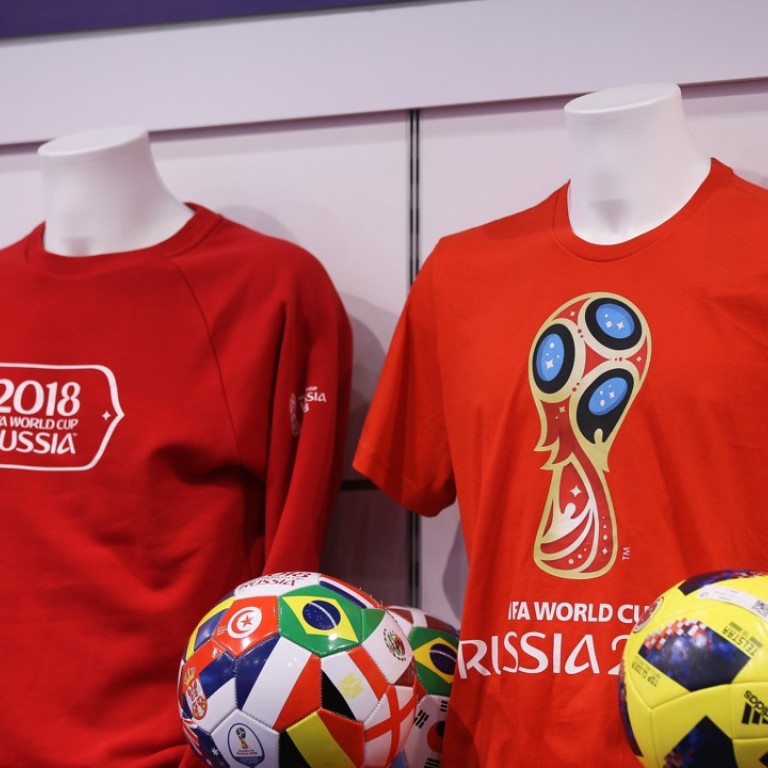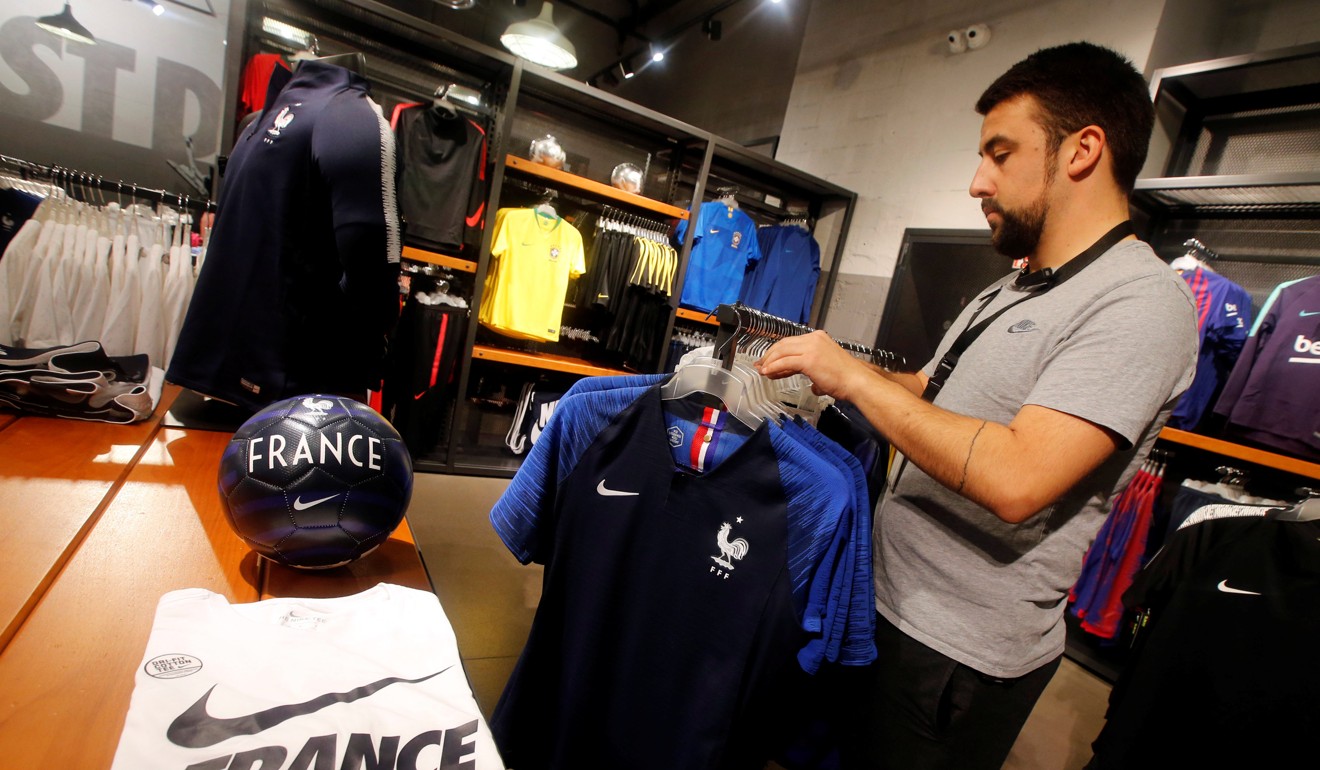
World Cup: Adidas and Nike urged to pay ‘fair wages’ to Asian workers who make apparel and shoes
Adidas and Nike, which are kitting out 22 of 32 teams at the football tournament in Russia that kicks off this week, have moved most of their sourcing to Indonesia, Cambodia and Vietnam
Sportswear giants Adidas and Nike – two of the main sponsors of the upcoming World Cup – must ensure workers in their Asian supplier factories are paid a fair wage as their share of the production cost dwindles, civil society groups said.
The share of what Adidas and Nike spend on making a pair of shoes that goes into workers’ pockets has fallen since the early 1990s, said the Clean Clothes Campaign (CCC), citing a shift in manufacturing from China to cheaper countries such as Indonesia.
“The share of production costs of Nike and Adidas shoes that ends up in a worker’s pocket is now a staggering 30 per cent less than in the early 1990s (2.5 per cent in 2017 for Nike shoes compared with 4 per cent in 1995),” the CCC said in a statement.
“The brands decided to spend their money on football players rather than on the workers stitching their shirts and shoes.”
Adidas and Nike, which are kitting out 22 of 32 teams at the football tournament in Russia that kicks off this week, have moved most of their sourcing to Indonesia, Cambodia and Vietnam, where wages are lower and labour abuses rife, the CCC said.
In the three nations, garment workers’ average salaries are 45 to 65 per cent below the so-called “living wage” that would allow them to cover their families’ basic needs, said the global coalition of trade unions, workers and human rights groups.
US brand Nike said its suppliers must pay their employees at least the local minimum wage or prevailing wage, including premiums for overtime worked and legally mandated benefits.
“We remain invested in conversations with governments, manufacturers, NGOs, brands, unions, and factory workers to support long-lasting, systemic change,” a Nike spokeswoman said.
Germany’s Adidas said it adhered to safe working conditions and fair wages throughout its supply chains, and obliged suppliers to pay at least the minimum wage required by law.
Neymar, Lionel Messi and Cristiano Ronaldo – which World Cup 2018 jerseys you can find in Hong Kong and where to buy them
“The average monthly take-home wage of production workers in the facilities Adidas works with in Indonesia is currently well above the current minimum wage,” an Adidas spokeswoman said.
Much of Adidas’ and Nike’s sportswear is made in Indonesia, where 80 per cent of workers in the garment sector are women and some make as little as US$102 a month while others do not earn the legal minimum wage, according to the CCC’s report.

Weekly wages should be enough to meet workers’ basic needs and afford them extra income to improve their lives to avoid them remaining “trapped in a cycle of poverty”, according to Martin Buttle of the Ethical Trading Initiative (ETI).
“Brands like Nike and Adidas need to take their responsibilities seriously … and pay suppliers a fair price,” Buttle said.
“Failure to do that can often result in low pay and poor conditions,” he added.
Having signed an agreement in 2011 on trade unions’ rights in Indonesia, Nike and Adidas should now follow up on their pledges to address job security and living wages, the CCC said.
“This is a long-standing problem of poverty level wages … brands are squeezing the prices which then has an impact on the workers,” said Anannya Bhattacharjee of the Asia Floor Wage Alliance (AFWA), a group which represents garment workers.
“(Soccer) is an inspirational sport but what everybody needs to remember is that the labour that goes behind the scenes to clothe the inspirational sportspeople is extreme exploitation and agony,” Bhattacharjee said.
“That is what we need to stop.”
